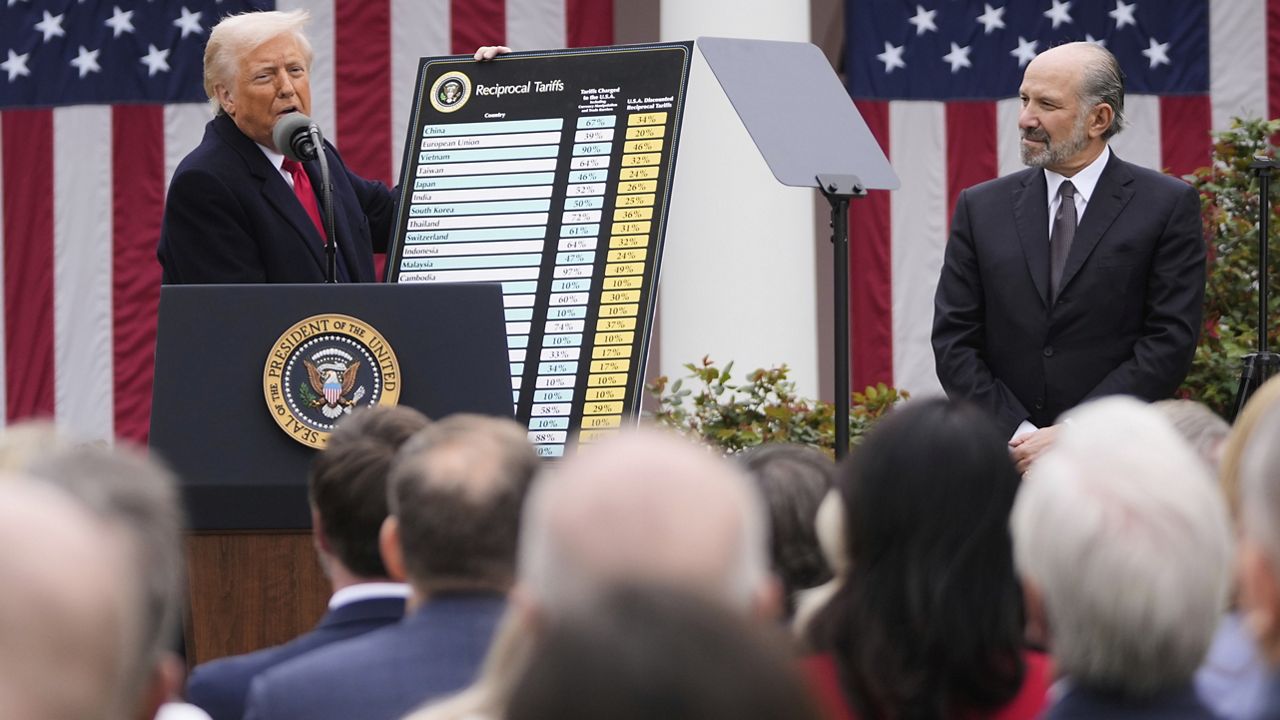LOS ANGELES — In September, the California State Legislature passed Senate Bill 253.
If signed by Gov. Gavin Newsom, the bill would require corporations operating in California with annual gross revenues of more than $1 billion to disclose their scope 1, 2 and 3 emissions.
Charles Miller is the chair of the Los Angeles chapter of The Climate Reality Project, a nonprofit organization dedicated to climate change advocacy and education.
Miller has been an active proponent of SB 253, or the Climate Corporate Data Accountability Act, and he says its passage marks an important step toward a greener future because, if signed into law, it would reveal vital information regarding greenhouse emissions.
“We can more forward with legislation, with local efforts, with regional efforts, with national efforts, to actually change things once we have better data in hand,” Miller said.
That data would be the scope 1, 2 and 3 emissions from large corporations operating in California.
According to the United States Environmental Protection Agency, “Scope 1 emissions are direct greenhouse emissions that occur from sources that are controlled or owned by an organization... Scope 2 emissions are indirect greenhouse emissions associated with the purchase of electricity, steam, heat or cooling... [and] Scope 3 emissions are the result of activities from assets not owned or controlled by the reporting organization, but that the organization indirectly affects in its value chain...Scope 3 emissions, also referred to as value chain emissions, often represent the majority of an organization’s total greenhouse gas emissions.”
Though many climate advocates are celebrating the bill, SB 253 has also attracted its fair share of opponents. The California Chamber of Commerce is among the bill’s harshest detractors, claiming SB253 would burden California businesses.
In a joint letter published by a number of organizations including California Independent Petroleum Association, California Bankers Association and California Business Properties Association, The California Chamber of Commerce urged a “no” vote on the bill, claiming it would cost every impacted company $600,000 per report every year.
Despite that opposition, SB 253 passed the California State Legislature and last month, Gov. Newsom announced he was planning to sign the bill into law. The bill’s author, State Senator Scott Wiener, says this latest development has been a long time coming.
“We’ve been working on this bill for three years. Last year the bill failed by 1 vote on the assembly floor, so it’s been a big fight from beginning to end,” Wiener said.
And that fight is not over. Senator Wiener says SB 253 is just the first step in the much longer process that is securing a renewable and green future. Even still, he is hopeful and confident the bill will make an impact on reducing emissions.
“We know that companies care about public perception and it’s estimated this could cause corporations to reduce their carbon footprints by over 50%,” Wiener said.
If Gov. Newsom signs Senate Bill 253, the California Air Resources Board would be required to adopt greenhouse emissions disclosure regulations by January 1st, 2025. Companies subject to SB253 would start disclosing Scope 1 and 2 emissions by 2026 and Scope 3 emissions by 2027.
Until then, legislators like State Senator Scott Wiener and activists like Charles Miller plan to continue their climate advocacy in whatever ways they can.











